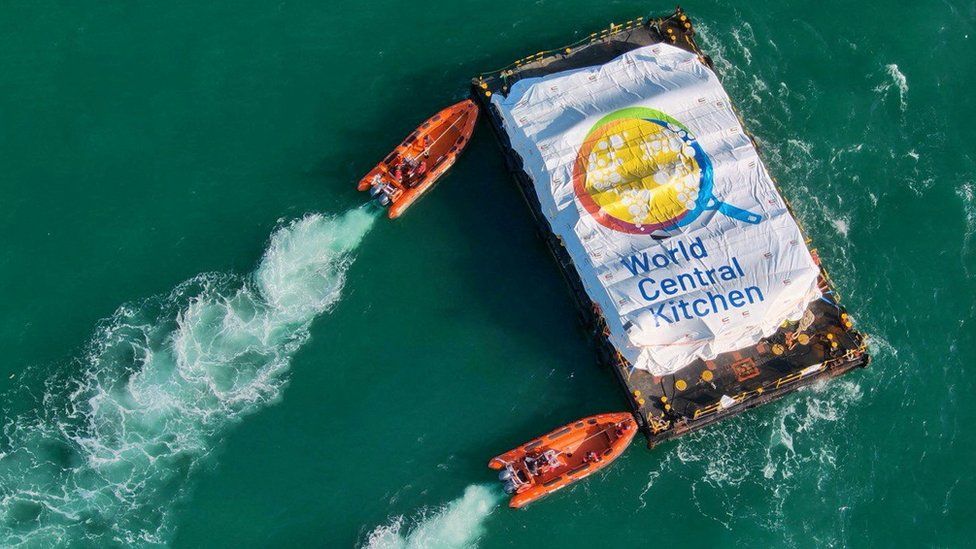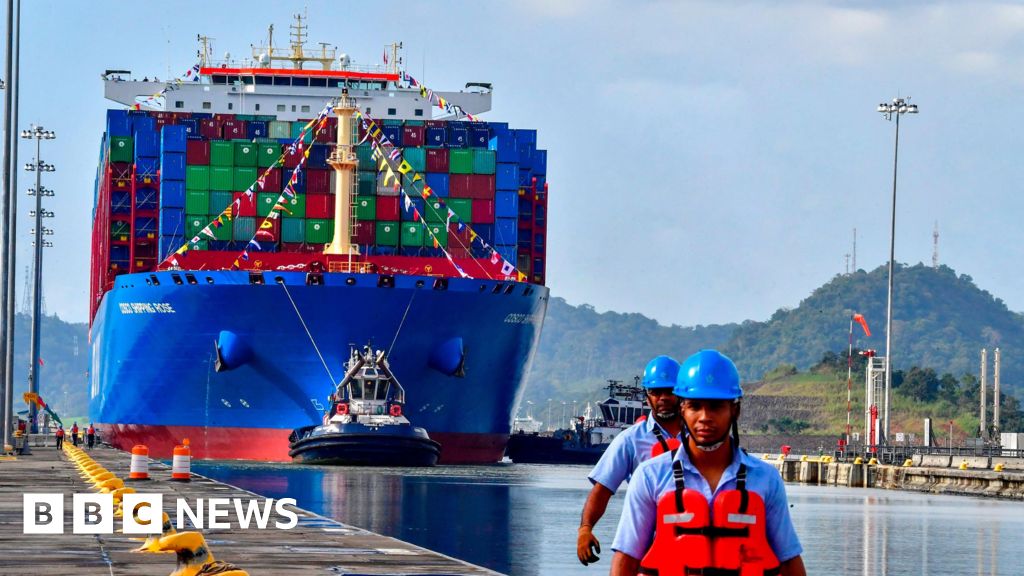ARTICLE AD BOX
 Image source, Reuters
Image source, Reuters
Dinghies were used to push a barge of food aid from the Open Arms ship to a purpose-built jetty
The first ship towing a barge of humanitarian aid to Gaza has begun unloading supplies onto the shore.
The Spanish ship Open Arms left Cyprus on Tuesday with 200 tonnes of food desperately needed for Gaza, which the UN says is on the brink of famine.
A temporary jetty was built to get the food to shore, but bad weather reportedly slowed down the process.
It marks the start of a trial to see if sea deliveries are effective, after air and land deliveries proved difficult.
World Central Kitchen (WCK), which supplied the food, carried out the mission in co-operation with the United Arab Emirates (UAE), to deliver the barge's cargo of rice, flour, legumes, canned vegetables and canned proteins.
Gaza has no functioning port, so a jetty stemming from the shoreline was built by WCK's team. A spokesperson for the group, Linda Roth, confirmed the barge was "connected now to the jetty" and being unloaded.
How the food will be distributed in Gaza remains unclear.
In a post on X (formerly Twitter) WCK's founder, celebrity chef José Andrés, said two crates had been delivered to shore, and they were hoping to get more aid to dry land "before bad weather".
He posted a video that appeared to show people standing on the jetty and a lorry driving up the beach.
In a statement, Israel said the Open Arms vessel and its cargo were inspected in Cyprus, and that Israel Defense Forces (IDF) troops had been deployed to secure the shoreline.
Image source, Reuters
Image caption,With Gaza's surrounding waters too shallow for large vessels, WCK built a jetty to help get the aid to dry ground
The delivery has been highly anticipated since the ship set off from a port in Larnaca on Tuesday.
If this sea mission is deemed a success, other aid ships will likely follow as part of an international effort to get more aid into Gaza. The ships would use a newly opened sea route to travel directly to the region.
Separately, the US is planning to build its own floating dock off the coast to boost sea deliveries. The White House says it could see two million meals a day enter Gaza, but while a military ship is en route with equipment on board to build the dock, questions remain about the logistics of the plan.
Military operations and the breakdown of social order have severely hampered aid distribution, while Gaza's own food production has been severely affected, with farms, bakeries and factories destroyed or inaccessible.
The quickest, most effective way to get aid into the territory is by road, but aid agencies say Israeli restrictions mean a fraction of what is needed is getting in.
The World Food Programme had to temporarily pause its land deliveries after convoys came under gunfire and looting. And an air drop turned deadly last week when five people were reportedly killed when a parachute failed and they were hit by the aid package.
The UN has warned that famine is "almost inevitable" in Gaza without urgent action, and the EU's foreign policy chief Josep Borrell has accused Israel of creating a "manmade" disaster and using starvation as a weapon of war.
Israel has vehemently denied it is to blame for Gaza's food shortages as it is allowing aid through two crossings in the south. Instead, it has blamed aid agencies of logistical failures.
The war began when Hamas gunmen attacked southern Israel on 7 October, killing about 1,200 people and seizing 253 hostages. More than 31,400 people have been killed in Gaza since then, the Hamas-run health ministry says.

 10 months ago
136
10 months ago
136








 English (US) ·
English (US) ·